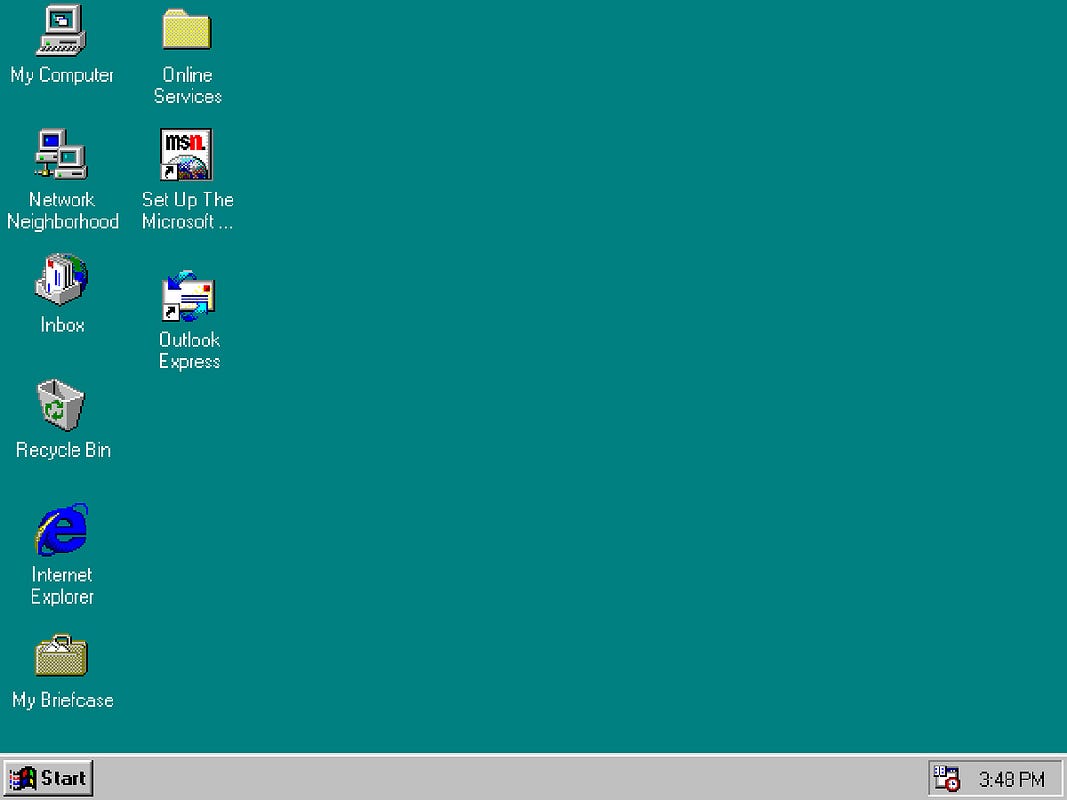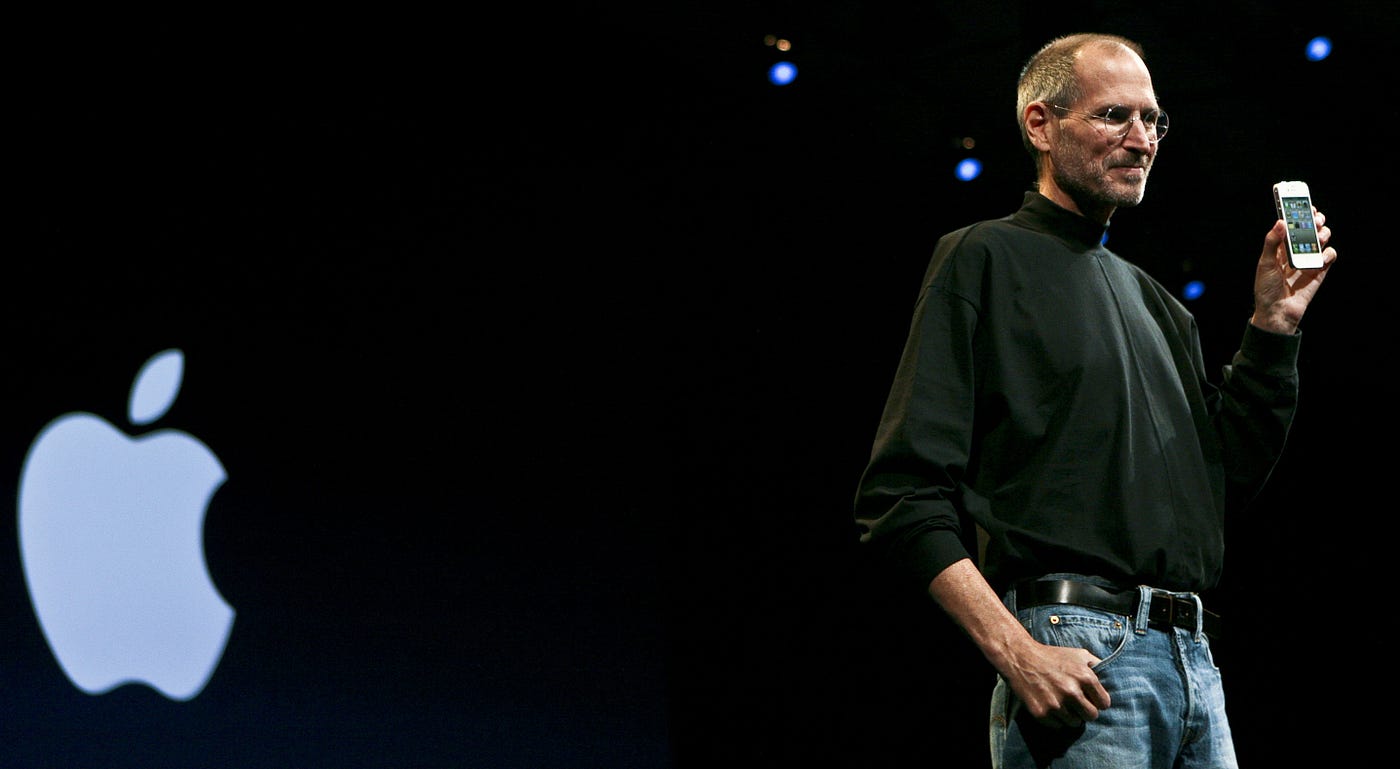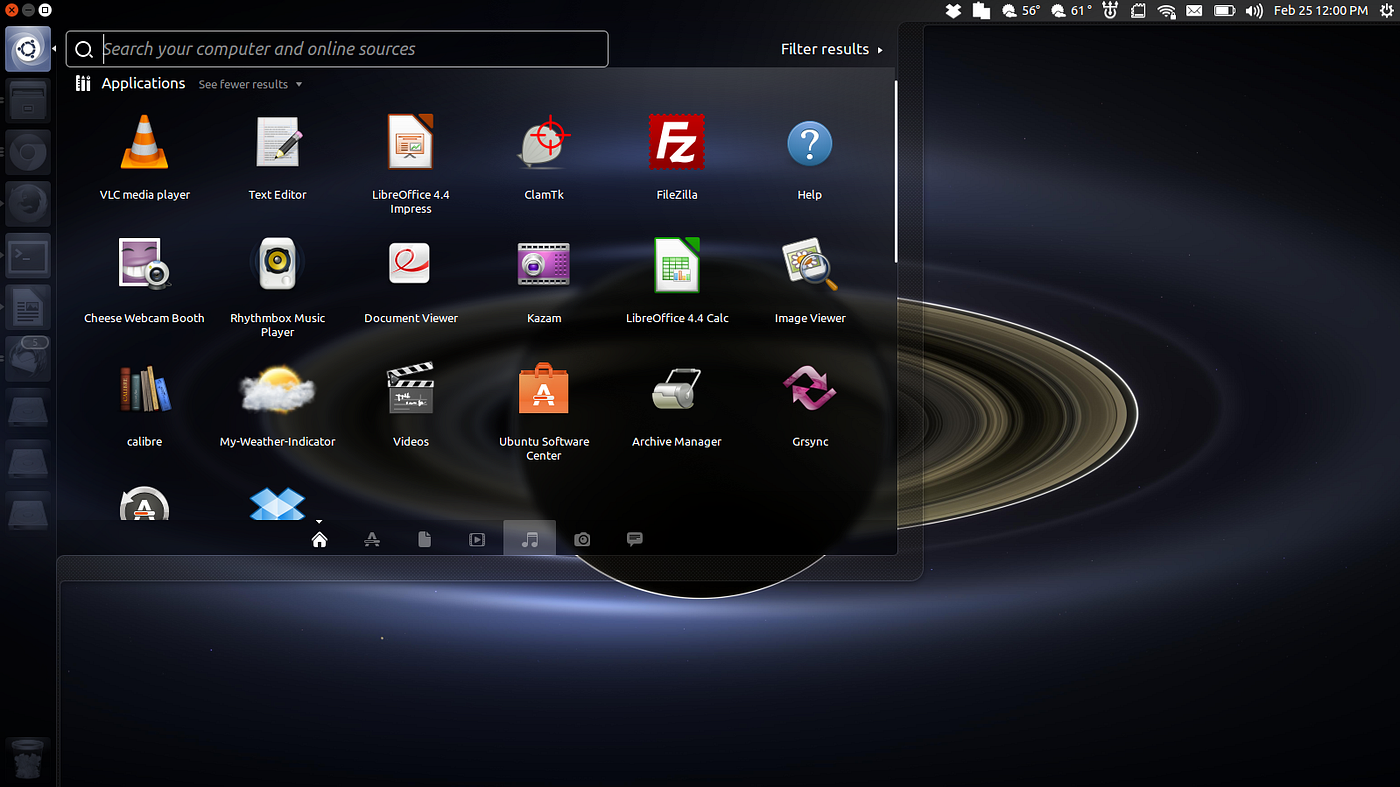欧盟几天前对谷歌提出了正式的反垄断指控,谷歌立即进行了斩钉截铁的回击。此后,谷歌将有十周时间,也就是两个半月的时间,来最终决定是寻求私了和解,还是对簿公堂。业界比较一致的观点是,谷歌并不害怕打官司,因为,凭借其无限的资源,他们完全有能力来应对一场旷日持久,也许会长达数年的诉讼。在这个过程中,谷歌可以进一步巩固自己的优势,面对更大的挑战。把整个事件引向无休止的诉讼,恰好是谷歌所喜闻乐见的。
事实上,目前谷歌最大的敌人,并不是欧盟或者美国的监管当局,而是Facebook,一个新兴的更有恃无恐的自然垄断者。决定谷歌命运的,不会是欧盟的围堵,而是Facebook 的挑战。因此,欧盟对于谷歌的反垄断指控的意义,也决不能就事论事。它其实提出了一个更为严峻,看起来了也更显无解的问题:如何与拥有自然垄断地位的高科技巨头打交道?欧盟与这样的巨头已经打了十多年的交道,似乎还没有找到解决方案。
在对这个问题进行思考并寻求解决方案的,并非欧盟一家。有一个人早就提出了这个问题,并以跟苹果、谷歌、微软说再见的方式,以一已之力,开始了一场堂吉诃德式的战争。在这样的背景下,“跟苹果、谷歌、微软说再见”口号,是不是看起来具备了更为深刻而强力的人文色彩? ( Updated,Apr.18)

一个中国人要跟谷歌说再见,不容易,安卓这道坎不容易迈;跟苹果说,有点难;跟微软说再见,更难。一个美国人要跟谷歌、苹果、微软说再见,无法想象。一个硅谷的美国人要跟谷歌、苹果、微软说再见,呵呵,更无法想象。但就是有这么一位身在硅谷的美国人,一位可以被称为硅谷记者良心的老人,喊出了这么一句口号。
他不是心血来潮。虽然正式以这样的口号喊出,还是第一次,但是,这是他一脉相承的思想。他的名字叫丹·杰尔默,如雷贯耳的名字。他是出身硅谷的报纸 —— 圣何塞水星报的著名记者。他自称,从来不是硅谷的啦啦队长;人称,他是一个无畏的记者。
丹·杰尔默的文章发表在正逐步走红的 Medium 网站上。Medium 的确越来越有大家风范。丹·杰尔默的这篇文章光从标题看,就值得一读。《为什么我要跟苹果、谷歌和微软说再见》。这是发表在 Medium重金打造的网上杂志 Backchannel 上的文章(2015年2月26日 ),Backchannel由前连线杂志挖来的名编辑 Steven Levy 主刀。Steven Levy 曾经在美国新闻周刊供职十几年,是其最重要的科技记者和编辑。(在整个Medium上,重金砸出来的重磅文章越来越多。这就是埃文·威廉姆斯期待的方向?不知道。但是,这样的持之以恒的作派,的确展现了所谓平台型媒体的魅力。也许,Medium 暂时还算不上一个卓越的平台,但肯定已经是一个卓越的媒体。新一代网上杂志,不是浪得虚名。杰尔默的文章摘要贴在下面,全文见主题链接)
丹·杰尔默是一个固执的老头,有时候甚至有些偏执。但是,他始终是值得尊敬的。作为一个难得的技术自由思想家,他比一般的技术控更多一份忧患意识。在这篇文章里,他告诉我们,苹果、谷歌、微软都很好,很强大,但是,他们太强大了。他们控制欲太强了。我们不能把自己完全交给这些巨头,不能被他们锁定。事实上,杰尔默清楚地知道,与这些巨头告别是不可能的任务,他的诉求仅仅是,不要被他们所完全控制,要拥有自己的不可剥夺的科技自由。这与他的一贯思想一脉相承。作为自媒体(We Media)一词的始作俑者,在谈到自媒体时,他说,目前仍然不是自媒体(We Media)时代,不是“我们”的时代,而是“他们”的时代!他们仍然在并且要主宰世界。他们,当然包括苹果、谷歌和微软。
在与他们的斗争中,杰尔默几乎没有胜算。但是,这个倔老头知其不可而为之。我们能帮他做点什么呢?呵呵,没有。杰尔默把斯诺登称为真正的美国爱国者,我愿意把他称为真正的技术自由战士,真正的爱技术者。这个人,是硅谷记者的良心。他见证了整个互联网时代,始终是一个给“他们”制造麻烦的人。前不久,他还责备过 Medium。显然,埃文·威廉姆斯在他心目中,也是“他们”。
下面是我前不久写的关于自媒体文章中的一小段,与杰尔默这里讨论的问题契合,其中引用了不少杰尔默的精彩观点,有助于理解其与谷歌、苹果、微软说再见思想的由来。
谷歌在欧洲是公敌,2014年,德国、西班牙的媒体先后向谷歌发难,把自己生意的颓势归咎于谷歌,欧盟甚至想要肢解谷歌。究竟是不是谷歌作的孽?至少他是“首犯”。目前,他是全球新媒体的老大。它不是公敌,谁是?自媒体在这过程中,最多只是协从,从犯。欧洲人根本没拿自媒体当回事儿。
我不知道欧洲人的认知是不是对的。但我知道欧洲人在数字时代是落伍的。只有欧洲人,其中包括德国人和西班牙人,用那么老土的方式来对抗谷歌,最后自取其辱。
我没有说欧洲人的认知是错的,谷歌是对的。信奉不作恶的谷歌,不仅对欧洲人做了许多恶,对全球各国也做了许多恶,这是没有疑问的。一个在印度搜索市场上占据了 97% 份额的公司,在欧洲占据了 90% 以上份额的公司,你怎么能够那么天真地以为,他不会作恶?祈祷吧。如果从谷歌在德国与西班牙的种种傲慢与任性的作为中,还看不到其恶的一面,那就只能说是自作孽,不可活。
欧洲人完全不值得同情,谷歌完全不值得信任。我没有怀疑谷歌人对于不作恶信仰的执着与坚持。我完全相信这家公司的领袖们在倡导这个理念时的虔诚。但是,在公司利益股东利益面前,在谷歌的“国家利益”面前,不作恶,决不是始终排在第一顺位的价值。在和德国媒体与西班牙媒体的强烈而没有任何讨价还价余地的对峙中,你能看到“不作恶”的丝毫迹象吗?至少欧洲人不会。在印度,我们目前还看不到谷歌与印度人激烈冲突,有谁会认为,这样的蜜月会一直持续下去?2014年的最后一天,印度媒体报道印度一口气封杀了32家在全球有一定影响力而又不配合清除有损其国家利益的网站。谷歌等巨头不在封杀之列。
谷歌在印度有一个催人泪下的精彩广告。那是一个非常完美的故事。印巴分治之后,印巴战争,一对好朋友分居印巴,但是,彼此仍然念念不忘。他们向自己的孩子不断地讲述战乱之前的如烟往事。学会了用谷歌的孩子们,通过谷歌发现了老人的朋友仍然健在,安排他们进行了一次意外的重逢。多么人文而煽情的好莱坞式故事,多么高尚而强大的科技恩赐者,这与恶,有一毛钱的关系吗?有,借着这样完美的广告以及无敌的服务,谷歌霸占着印度97%的搜索市场,这种明火执仗的垄断,不是恶,是什么?这是恶之花。在德国与西班牙已经发生的事情,也必将在印度发生,因为,印度人最终会发现原来自己一直生活在一个巨大的遮天蔽日的互联网阴影之中。他们会这样一直心甘情愿地屈从于谷歌,生存下去吗?
所以说,真正在新媒体世界起关键作用的,不是散兵游勇的自媒体,而是集群的新媒体巨头。自媒体,只是巨头的前世。自媒体,可以取得一城一池的胜利,而不能从根本上改变局面。不要夸张“我们”的力量(We Media),“我们”是相对于“他们”——媒体巨头,而存在的。“他们”,才是这个世界的主宰者。重温一下“我们”的代言人丹·杰尔默关于“他们”的话吧:
“自媒体”是大众化、民主化的媒体。在自媒体的语境下,我们所有人都拥有低门槛、高质量地创设传播工具的手段。我们在做一些前所未有的尝试,而这些曾经是“他们”的专属领地,“他们”的“后宫”。“他媒体”(They,theMedia),现在成了自媒体(We,TheMedia)。
这是丹·杰尔默在2008年与采访他的记者讨论自媒体时的一段话,这段话翻译起来有点累,费了我不少心思,也没有做到百分百忠实,但读起来还是有点豪迈吧。不过,你听听他2014年的另一句名言吧,那句话简单、直白:
“机器人将接管这个世界,而硅谷将控制它们”。
呵呵,这都是 “ 他们 ” 和 “ 它们 ” 的事情,这将是 “ 他们 ” 和 “ 它们 ” 的世界,与“我们”何干?我想,杰尔默说的机器人robots,应该也包括会写新闻稿的程序,会摸清我们的底牌、给我们推送新闻的“算法”。这些,都是硅谷的人,以及并不住在硅谷的硅谷人,所能控制的。
当来自硅谷的谷歌、脸书把我们所有的人都当做小白鼠的时候,把 “ We Media ” 捧上天去,不是显得十分滑稽吗?——前面半句里的实验室小白鼠比喻,是来自吉尔默的可以加引号的直接引语,后面半句,是我的结论。如果大家怕我断章取义,可以在文章评论栏里质疑,我会提供几篇吉尔默的长文链接,你自己来做判断,我理解得是否精准。
当然,有时候“我们”与“他们”的界线并不清楚。比如,发明了 Blogger 一词的埃文 · 威廉姆斯创造了博客平台,直接促成了博客浪潮的产生,催生了自媒体。但是,博客改变世界了吗?亚马逊河边一只蝴蝶翅膀的扑动也会改变世界,从这个意义上讲,博客的确改变了世界,但是,这种改变只是诗情画意的联想。博客威廉姆斯在把博客卖给谷歌(历史就是有这么多巧合,互联网上最大的“他们”,恰恰是互联网上最早最大的 “ We Media ” 平台的买家,买断“我们”的买家)之后创造的推特平台,改变世界的力度就大了,它甚至直接促成了一些国家的革命,改变了一些国家的政治发展进程。但推特虽然源自博客,源自原教旨主义的自媒体,它根本上不是自媒体,而是媒体机构。注意,推特甚至不承认自己是媒体,更不用说自媒体了。但推特承认或者不承认,又有什么关系呢。这层挡箭牌,就象皇帝的新衣一样,压根儿不存在。
生活在旧金山的埃文·威廉姆斯曾经是一个博客,现在仍然是一个博客,他仍然爱写博客,爱在自己的新博客平台 Medium 上厮守,给他喜欢的博客点赞。这样看起来,他好象还是一个自媒体人。千万不要被他骗了。这个人决不是 “ 我们 ”,他是典型的 “ 他们 ”,他虽然在减持,但今天仍然是推特的第一大个人股东。而且,Medium 还不知道会进化成一个什么样的生猛怪兽。这些来自硅谷的人,就是那些控制着机器人,将要来统治我们世界的“他们” —— 借丹·杰尔默的段子,找个乐。(《自媒体的中国故事 vs 博客的美国传奇》)
Why I’m Saying Goodbye to Apple, Google and Microsoft
I’m putting more trust in communities than corporations
When I became a technology columnist in the mid-1990s, the public Internet was just beginning its first big surge. Back then, I advised my readers to avoid the semi-political, even religious battles that advocates of this or that technology platform seemed to enjoy. Appreciate technology, I urged, for what it is — a tool — and use what works best.
So why am I typing this on a laptop runningGNU/Linux, the free software operating system, not an Apple or Windows machine? And why are my phones and tablets running a privacy-enhanced offshoot of Android calledCyanogenmod, not Apple’s iOS or standard Android?
Because, first of all, I can get my work done fine. I can play games. I can surf endlessly. The platform alternatives have reached a stage where they’re capable of handling just about everything I need.
More important, I’ve moved to these alternative platforms because I’ve changed my mind about the politics of technology. I now believe it’s essential to embed my instincts and values, to a greater and greater extent, in the technology I use.
Those values start with a basic notion: We are losing control over the tools that once promised equal opportunity in speech and innovation—and this has to stop.
Control is moving back to the center, where powerful companies and governments are creating choke points. They are using those choke points to destroy our privacy, limit our freedom of expression, and lock down culture and commerce. Too often, we give them our permission—trading liberty for convenience—but a lot of this is being done without our knowledge, much less permission.
The tools I use now are, to the extent possible, based on community values, not corporate ones.
I’m not acting on some paranoid fantasies here. I’m emulating, in the tech sphere, some of the principles that have led so many people to adopt “slow food” or vegetarian lifestyles, or to minimize their carbon footprint, or to do business only with socially responsible companies.
Nor do I intend to preach. But if I can persuade even a few of you to join me, even in some small ways, I’ll be thrilled.
I’m the first to recognize, meanwhile, that I’m still a long way from achieving true tech liberty. Maybe it’s impossible, or close to it, in the near and medium terms. But this is a journey—a continuing journey—worth taking. And if enough of us embark on it, we can make a difference.
Part of my conversion stems from an abiding distaste for corporate and government control-freakery. If we believe in liberty, we have to realize that we take risks to be more free. If we believe in competition, we sometimes have to intervene as a society to ensure that it’s fair.
One way we try to ensure fair competition is enforcement of laws designed to promote it, notably antitrust rules that seek to prevent dominant companies from abusing their dominance. A classic example emerged in the 1990s: Microsoft, a company that had outsmarted and/or outsleazed IBM and everyone else in its rise to pure dominance in the operating system and office “productivity” software markets.

Microsoft’s software wasn’t the best in many cases, but it was more than good enough — and the company’s business tactics ranged from brilliant to ugly, often both at the same time. The Clinton administration, weak-kneed earlier in the decade, finally realized it needed to prevent Microsoft from unfairly leveraging its Windows/Office dominance to rule the next generation of computing and communications, and the late-1990s antitrust suit helped give innovators such as Google a chance to emerge.
My column regularly took Microsoft to task for its various transgressions.
Around the turn of the century, my distaste for the company’s
business practices boiled over.
I made a personal “declaration of independence” from the software company, at least to the extent possible at the time. I moved (back) to an Apple Macintosh — which by then had adopted a serious, modern operating system running on great hardware — and apart from using Microsoft Office from time to time I largely liberated myself from sending money to a company I didn’t respect. Apple made it easy to stick with my switch, because the MacOS and Mac hardware became best-of-class during that period—and lots of people discovered, as I had, that the Windows ecosystem was giving them more trouble than it was worth.
At Silicon Valley press events in the early- to mid-2000s, I’d often be one of two journalists with Mac laptops (the other was the New York Times’ John Markoff, who’d adopted the Mac early on and stayed with it). A decade later, just about everyone in the tech press has switched to the Mac. Apple has done an absolutely spectacular job of creating technology in the past 15-plus years. I used to say that while Windows tended to get in my way, the Mac OS tended to get out of my way. For years I recommended it to anyone who’d listen.
Yet now when I attend tech events, I’m one of the few people not using a Mac or an iPad. What happened?
Three things: the expanding power of Apple and a new generation of tech giants; a reassertion of my own social-justice geekery; and solid alternatives.
In Steve Jobs’s eras as CEO, Apple reflected his character and qualities. That was thrilling in most ways, because he demanded something close to perfection. But then the underdog revolutionized mobile computing and became the winner—one day we all realized it was one of the planet’s most powerful, profitable and valuable companies. Apple became the kind of company I prefer not to support: control-freakish to a fault with customers,software developers and the press; and, I came to believe, even dangerous to the future of open networks and user-controlled technology.

At the same time, Google and Facebook, among others, were emerging as powers of a different kind:
centralized entities that
use surveillance as a business model, stripping away our privacy in return for the great convenience they provide.
Our mobile devices—and even our PCs, the key tools for tech liberty in earlier decades—increasingly came with restrictions on how we could use them.
I’d periodically played with Linux and other alternatives on my PC over the years, but always found the exercise tedious and, in the end, unworkable. But I never stopped paying attention to what brilliant people like Richard Stallman and Cory Doctorowand others were saying, namely that we were leading, and being led, down a dangerous path. In a conversation with Cory one day, I asked him about his use of Linux as his main PC operating system. He said it was important to do what he believed in—and, by the way, it worked fine.
Could I do less, especially given that I’d been public in my worries about the trends?
So about three years ago, I installed the Ubuntu variant — among the most popular and well-supported — on a Lenovo ThinkPad laptop, and began using it as my main system. For a month or so, I was at sea, making keystroke errors and missing a few Mac applications on which I’d come to rely. But I found Linux software that worked at least well enough, and sometimes better than its Mac and Windows counterparts.
And one day I realized that my fingers and brain had fully adjusted to the new system. Now, when I used a Mac, I was a bit confused.
I’ve owned several more ThinkPads. My current model is a T440s, which strikes me as the best combination of size, weight, upgradability, customer service, and price. Ubuntu supports lots of hardware, but has been especially friendly to ThinkPads over the years. It’s also possible to buy computers preloaded with Linux, including several laptops from Dell, to avoid a lot of the hassle. (After Lenovo’s stunningly incompetent violation of its Windows customers’ security in a recent debacle, I’m glad that I a) don’t use Windows, and b) have hardware alternatives.)

Just about every kind of software I need is available for Linux, even if it often isn’t as slick as the Windows or Mac products it replaces.LibreOffice is an adequate Microsoft Office substitute for the things I do. Mozilla’s Thunderbird handles my email fine. Most major browsers come in Linux versions; I use Mozilla Firefox most of the time.
Some tasks I can’t do as well with Linux, such as complex screencasting— recording what the screen is doing, adding a voice-over track and perhaps a video inset, and zooming in to highlight specific items. I’d gladly pay for something like this in Linux, but it’s simply not available, as far as I can find. So I switch back to Windows, the operating system that came with the ThinkPad, and run a program called Camtasia.
As mobile computing has become more dominant, I’ve had to rethink everything on that platform, too. I still consider the iPhone the best combination of software and hardware any company has offered, but Apple’s control-freakery made it a nonstarter. I settled on Android, which was much more open and readily modified.
But Google’s power and influence worry me, too, even though I still trust it more than many other tech companies. Google’s own Android is excellent, but the company has made surveillance utterly integral to the use of its software. And app developers take disgusting liberties, collecting data by the petabyte and doing god-knows-what with it. (Security experts I trust say the iPhone is more secure by design than most Android devices.) How could I walk my talk in the mobile age?
A third-party community movement has emerged around Android, taking the basic software and making it better. One of the most important modifications is giving users much more control over the privacy settings than Google permits with standard Android.
One of the best established of these projects is Cyanogenmod. It was preloaded on one of my phones, a new model called the OnePlus One, and I installed it on an older Google-branded phone. Not only do I make use of the enhanced “Privacy Guard” settings, but messaging is encrypted by default — something every phone and carrier should emulate (Apple does, but the Android providers are slow on this).
And, after all I’ve done to become more independent, a confession: I’m still using some Microsoft and Google software—making me at least a partial hypocrite. Google Maps is one of the few indispensable features of my smartphone (Open Street Map is a fantastic project but not wonderful enough), and as I mentioned above, I still have an occasional need for Windows. The journey to tech liberty has endless detours, because all of this is endlessly nuanced.
So I keep looking for ways to further reduce my dependence on the central powers. One of my devices, an older tablet running Cyanogenmod, is a test bed for an even more Google-free existence.
It’s good enough for use at home, and getting better as I find more free software — most of it via the “F-Droid” download library — that handles what I need. I’ve even installed a version of Ubuntu’s new tablet OS, but it’s not ready, as the cliche goes, for prime time. Maybe the Firefox OS will be a player.
But I’ve given up the idea that free software and open hardware will become the norm for consumers anytime soon, if ever—even though free and open-source software is at the heart of the Internet’s back end.
If too few people are willing to try, though, the default will win. And the defaults are Apple, Google and Microsoft.
Our economic system is adapting to community-based solutions, slowly but surely. But let’s face it: we collectively seem to prefer convenience to control, at least for the moment. I’m convinced more and more people are learning about the drawbacks of the bargain we’ve made, wittingly or not, and someday we may collectively call it Faustian.
I keep hoping more hardware vendors will see the benefit of helping their customers free themselves of proprietary control. This is why I was so glad to see Dell, a company once joined at the hip with Microsoft, offer a Linux laptop. If the smaller players in the industry don’t themselves enjoy being pawns of software companies and mobile carriers, they have options, too. They can help us make better choices.
Meanwhile, I’ll keep encouraging as many people as possible to find ways to take control for themselves. Liberty takes some work, but it’s worth the effort. I hope you’ll consider embarking on this journey with me.